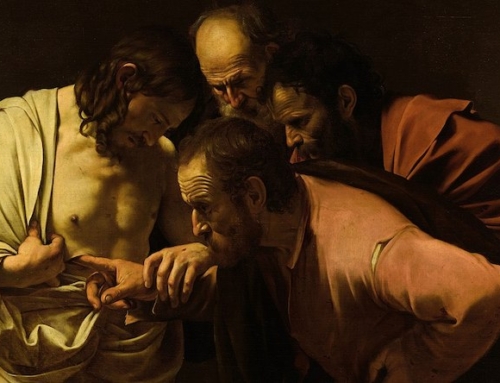Panis Vivus: An Essay on the Eucharist
A “panis vivus” essay is meant to convey, in no uncertain terms, that the Eucharist is really and truly the body, blood, soul, and divinity of Our Lord Jesus Christ. It is our collective response to the 2019 Pew Research Center survey, which reported that only a third of United States Catholics believe in the Real Presence.
O sacrum convivium! in quo Christus sumitur: recolitur memoria passionis eius: mens impletur gratia: et futurae gloriae nobis pignus datur.
St. Thomas Aquinas composed this beautiful prayer as the antiphon to be chanted before the Magnificat at Vespers on the Feast of Corpus Christi. While it has been recited and sung in English with numerous, slight variations, the translation we use at the Dominican House of Studies is:
O sacred banquet! In which Christ becomes our food The memory of his passion is celebrated, the soul is filled with grace, and a pledge of future glory is given to us.
As Dominicans, when we gather to pray the Liturgy of the Hours in the presence of the Blessed Sacrament, we all kneel and pray the O Sacrum Convivium. We begin all of our common liturgical prayers with this short antiphon because it serves to orient our prayer. As with so many of the prayers in our Catholic tradition, the frequency with which we recite it should spur us to ponder its meaning and the reason we pray it so often. Therefore, permit me to offer two notes for reflection on this small but valuable treasure of a prayer.
The first is that St. Thomas starts this prayer by praising the Eucharist as food, and more specifically a banquet. The Latin word “convivium” should call to mind the English word “conviviality.” The image is not that of choking down a Clif Bar on the way to work, but of a true feast; it is an occasion not only of sustenance, but of joy and of celebration. In the Eucharist, Jesus becomes my food, and this should be a cause of great joy for me! My emotions may not always respond with elation as I sit at Mass each day. Yet I know that Christ has made himself my sustenance, and this should be a cause of enduring joy that is deeper than passing emotions.
It seems curious to say this of something we eat, but while we often focus on Christ’s Real Presence in the Eucharist, we can easily forget that his Real Presence comes to us precisely as food. Jesus could have used other means to bring about this most intimate of unions with us, but he specifically chose nourishment. When St. Thomas discusses the Eucharist in the Summa Theologiae, he makes this same point right out of the gate. He explains that, whereas Baptism is the sacrament of our birth as Christians and Confirmation is the sacrament of our maturity, the Eucharist is the sacrament of our nourishment. This is because “food is required for the preservation of life” (ST III, q. 73, a. 1). The Eucharist is as necessary for our spiritual life as ordinary food is for our physical life—a reality which is beautifully signified by some saints to whom God gave a special grace to fast to the point of sustaining their physical lives on the Eucharist alone.
Secondly, we should note that St. Thomas’s reflections pertain to the past, present, and future. In this present moment, we remember and “celebrate” Christ’s past “Passion.” His Passion is the means by which he has procured our marvelous banquet. It is Christ’s Passion which is the source of the “grace” with which our souls are “filled” now. Through that grace which is given as our sustenance in this present moment, we are also oriented to our “future glory” where we shall enter into the eternal joy of our master at the heavenly banquet. Indeed, it is this banquet and this communion which we already partake of imperfectly and in a veiled manner now. This “sacred banquet” is a “pledge of future glory” precisely because we receive in it the beginning of the fullness that will be ours in the perfect convivium in heaven.
✠
Photo by Alasdair Elmes







